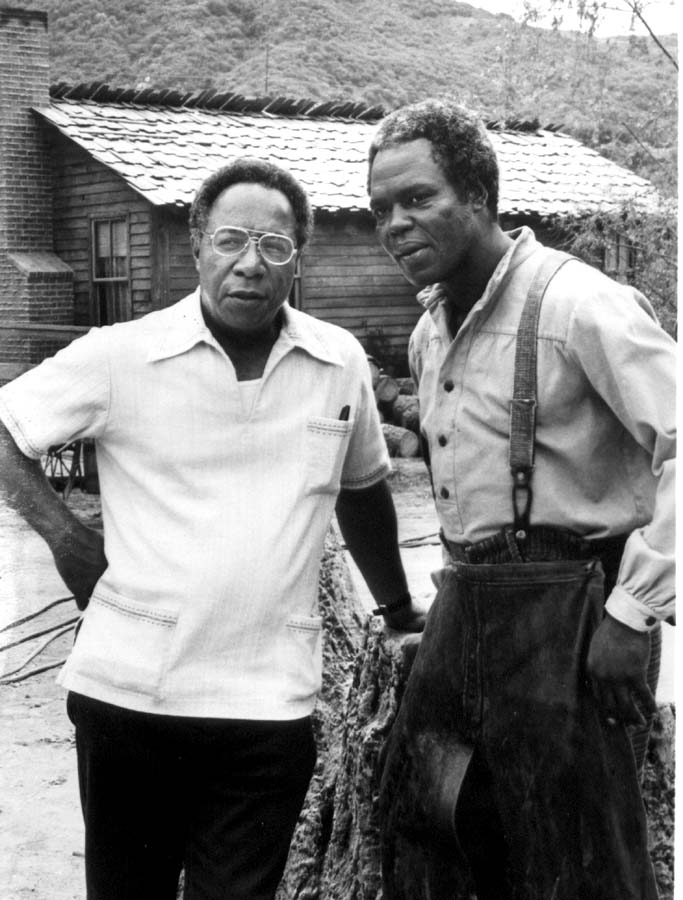In June 1977, I vaguely recall graduating from high school.
I’d wanted to leave five months earlier since I’d finished my coursework. But I was the co-captain of our championship dance team and felt obliged to stick around.
The one thing seared into my memory from that year—sitting transfixed in front of the TV for eight nights, watching the miniseries Roots.
In a time before cable and streaming video, 100 million Americans saw the finale, breaking Neilsen ratings.
“A nation tuned in, and a nation was changed,” wrote journalist Teresa Wiltz. Without a doubt, I was changed.
I got the book from the library and devoured it (since I had nothing to do but practice my kicks and splits). Roots ignited my passion — I knew I wanted to write stories that made a difference.
I had a full college scholarship. I would leave high school early, jump start a Literature degree, and embark on my writing career before I could legally buy a beer in California.
It didn’t quite work out that way for me. Here I am, 35 years later.
It didn’t quite work out that way for Alex Haley (1921-1992). Like many of us, the Pulitzer prizewinning author of Roots took a meandering path to his calling.
Haley was a bright kid, the son of a schoolteacher and a professor of agriculture. He graduated high school at age 15 and enrolled in college. But perhaps that precociousness became a burden. By his own estimation, he was “the most undistinguished freshman.”
Haley dropped out two years later. His father suggested he join the military to learn some discipline. Haley chose the Coast Guard.
Twenty Years at Sea
In 1939, he enlisted as a Mess Attendant Third Class, one of the few positions open to minorities. There was no enlisted training center at the time, so he learned “on the job” from his ship’s veterans.
And, with their tales of the high seas, those old salts ignited his passion for storytelling.
But the long patrols could be tedious, so Haley became a prolific correspondent, often writing 40 letters or more a week to family and friends. His shipmates soon consulted him for help with their love letters.
Haley started a ship’s newspaper called The Seafarer. He composed short stories and articles for Coast Guard Magazine. He wrote an article about the disappointment servicemen felt when their families didn’t write, and it was picked up by a national newspaper.
After World War II, Haley petitioned the Coast Guard for a transfer to journalism. By 1949, he had become a Petty Officer First Class with the rating of Journalist. He advanced through the ranks and was designated the first Chief Journalist. The Coast Guard created the post for him in recognition of his writing talent.
At age 38, Haley retired with good memories:
You don’t spend twenty years of your life in the service and not have a warm, nostalgic feeling left in you. It’s a small service, the Coast Guard, and there is a lot of esprit de corps.

Playboy and Malcolm X
Haley parlayed this military experience into a civilian career. He started as an assignment writer for Reader’s Digest, then moved on to Playboy, where he initiated the prestigious “Playboy Interviews” series.
He landed an interview with Malcolm X, who distrusted him at first. But Haley won him over and they began to collaborate. “He was most aware of the periodical’s power, and he had come to regard me, if still suspiciously, as one avenue of access.”
Their talks became the basis for The Autobiography of Malcolm X, published when Haley was 44. It sold more than six million copies.
The Call of Story
The windfall from that project allowed Haley to follow a dream—tracing a family folktale back to its roots in The Gambia. Haley’s ten-year journey across three continents culminated in the novel, Roots, about his ancestor, a Mandingo boy named Kunte Kinte who was sold into slavery.
Haley’s old employer Reader’s Digest printed excerpts of Roots before its 1976 publication date. It became an instant success and won a Pulitzer in 1977 when Haley was 56.
That same year, ABC-TV premiered the miniseries I recall so well. In 1979, they produced a sequel, also written by Haley. Roots has done more than any other book to stimulate interest in Africa, and black history and genealogy. It has been translated into 23 languages.
In 1992, at age 70, Haley died of a heart attack. A decade later, Annapolis unveiled a memorial in the harbor where Kinte Kinte first stepped foot in America. It depicts Haley reading to three children of different ethnic backgrounds.
In 1999, the Coast Guard named a cutter after him, an honor I suspect would have most pleased Haley, since they first recognized his writing talent.
I was a sailor, I was a cook and this and that, and it might be said I was bootstrapped up to being a writer.
Self-taught and self-made, Alex Haley inspired a whole generation to discover their ancestors and tell their stories. I, for one, will never forget.
Sources
- Wiltz, Teresa. The Root.com: Roots: More Than Just a Miniseries
- New York Times: Obituary
- United States Coast Guard: Haley’s military bio and photos
